Society and regional strategies Reading time 3 min
The shift to high-performance agriculture
Published on 11 October 2013

Farming in France will change profoundly in the next ten years, and thanks to several projects, the transition is already underway. The production-driven model used in French farming since the 1950s – which increased productivity tenfold – is being replaced by a new ‘multi-performance’ model.
In France and around the world, the post-war agricultural model has certain limits, as evidenced by the damage it does to biodiversity and the environment, how it flattens out crop yields, and creates pesticide resistance in certain pests. A shift to more sustainable, but equally efficient, production methods, and to diverse forms of agriculture, is essential in order to meet the agricultural, nutritional, energy, environmental and social challenges of tomorrow.
At the request of the General Commission for strategy and foresight (CGSP), INRA conducted a study to examine how agricultural production systems in France can be made more sustainable. The potential progress offered by organic farming systems versus conventional production systems was analysed by looking at two questions:
- How can organic farming be more productive and competitive?
- How can the transition be made from conventional to more sustainable forms of agriculture?
These issues were explored using a chart of production-related, economic, environmental and social performance indicators combined with all available data on innovative farming systems – both organic and conventional – which offer new compromises between these various indicators.
Results of the study have been published in a report containing four separate and independent (but complementary) volumes and summaries on organic and conventional farming.
How can organic farming in France be more productive and competitive?
The study makes four recommendations:
- R1) Resolve the significant lack of information currently available for analysis of organic farming performance indicators;
- R2) Improve agronomic and zootechnical results in organic farming as a priority in research, R&D and development;
- R3) Officialise training and consulting in organic farming, and expand teaching beyond biological and technical considerations at the farming stage;
- R4) Operationally and effectively adapt the French Ministry of Agriculture’s “Ambition Bio 2017” organic farming programme for several different contexts.
Two questions address:
- what is the “right” amount of support for organic farmers – in comparison to other sectors;
- the pros and cons of “mainstreaming” organic farming – the standardization and simplification of the methods used and the sale of organic products in medium- and large-sized supermarkets, etc.
How can the transition be made from conventional to more sustainable forms of agriculture?
The study makes seven recommendations:
- (R1) Set the course: define overall objectives that are realistic yet ambitious and which translate the push towards more effective farming systems;
- (R2) Develop an information system: gather, organize and share knowledge and expertise on high-performance practices and systems;
- (R3) Supply the information system (part I): develop research efforts in line with challenges;
- (R4) Supply the information system (part II): develop in situ experimentation efforts in line with challenges;
- (R5) Learn how to use the information system: develop decision-making and (initial and continuing) education tools for stakeholders;
- (R6) Generate new interest in agricultural consulting and ensure that new consulting opportunities are accessible to those who want them;
- (R7) Encourage the shift to high-performance agriculture through bold and consistent public policy.
Study report
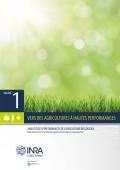
Volume 1 : “Outcomes in organic farming: an analysis” reviews scientific literature on performance indicators in organic farming and original statistical studies on production-related and economic outcomes of organic farms in France, and assesses the competitiveness of the organic industry at the national level using a specific survey;
Volume 1 - Outcomes in organic farming (in French) (PDF 6,2 MO)
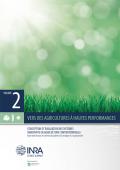
Le volume 2 « Conception et évaluation de systèmes innovants en agriculture conventionnelle » présente la méthodologie adoptée pour identifier et apprécier les pratiques et ensembles de pratiques qu’il serait possible de mettre en œuvre pour une transition des différentes agricultures françaises vers la multi-performance ;
Volume 2 - Designing and assessing innovative systems in conventional farming (in French) (PDF 5,1 MO)
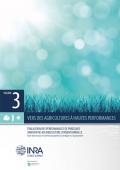
Le volume 3 « Évaluation des performances de pratiques innovantes en agriculture conventionnelle » propose une analyse détaillée des performances productives, économiques, environnementales et sociales de plus de 200 pratiques agricoles élémentaires organisées en un certain nombre de classes de pratiques ou méta-pratiques ;
Volume 3 - Innovative practices in conventional farming: assessing results (in French) (PDF 4,4 MO)
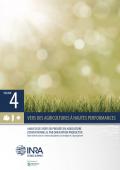
Le volume 4 « Analyse des voies de progrès en agriculture conventionnelle par orientation productive » propose une analyse des freins et leviers à la multi-performance pour les principales filières agricoles, végétales et animales, de l’agriculture française.
Volume 4 - Assessing ways to improve conventional farming through productive orientation (in French) (PDF 7,9 MO)
Summaries
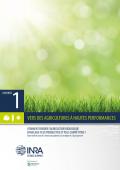
Volume 1 : summary on organic farming.
Summary 1 - Organic farming (in French) (PDF 1,6 MO)
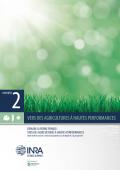
Volumes 2, 3 and 4 summary on conventional farming.
Summary 2 - France's farms tomorrow (in French) (PDF 1,7 MO)
